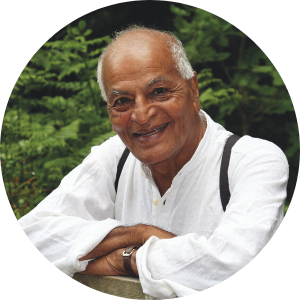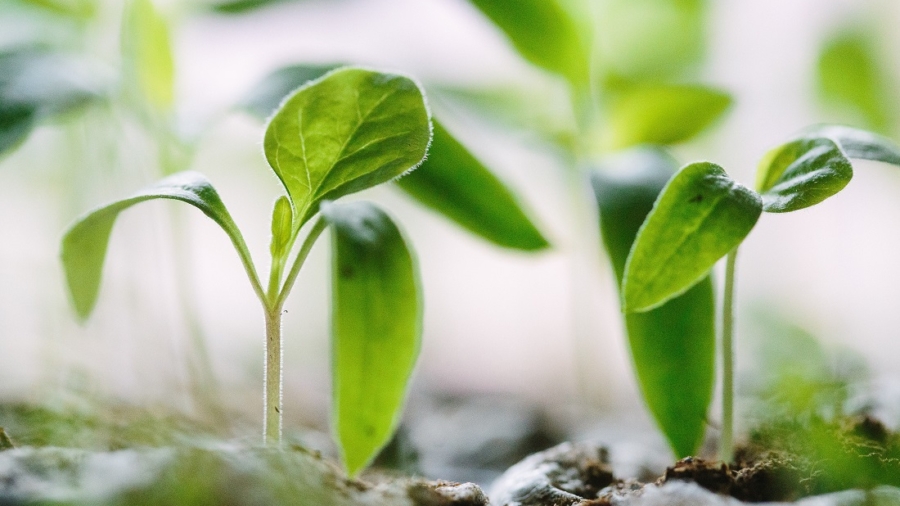by Satish Kumar
“‘Tis the gift to be simple,
‘Tis the gift to be free…”
Thus begins a Shaker song written in 1848 by Elder Joseph Brackett. Shakers are the supreme example of elegant simplicity, the embodiment of beauty in simplicity. For the Shakers, minimalism is a way of life. For a long time, they have been my inspiration.
In my own life, the seeds of simplicity were sown when I became a Jain monk at the age of nine. The religion of the Jains is somewhat similar to the way of the Shakers. For Jains, a minimum of material possessions is a prerequisite for a maximum spiritual life. The more time you spend looking after worldly goods, the less time you have for meditation, for study of the scriptures, and for chanting and singing sacred mantras. Such was the teaching of my Jain Guru.
At the age of 18, I came across the writings of Mahatma Gandhi, another great champion of simplicity similar to the Shakers and the Jains. “Simple living and high thinking” was his motto. He lived in a simple hut which he had built himself, he spun the yarn for his loin cloth and his shawl. He grew vegetables and cooked his own food while leading the Independence Movement of India and editing a weekly journal. Thus he proved that it is possible to meet our physical needs through living simply and at the same time be socially, politically, and intellectually active.
For Gandhi, simplicity was also a statement of social justice. He subscribed to the ideal that you should “live simply so that others may simply live.” An acquisitive and consumerist lifestyle necessitates the exploitation of the weak and of Nature. As consumers, we squander resources and waste our time and effort in chasing after things we do not need. We put greed above need, glamour above grace, and exploitation above conservation. Opulent living produces waste, pollution, and poverty.
My life both as a Jain monk and in a Gandhian ashram was one of utter simplicity. Thus the ideal of simple living became my second nature.
In 1962, at age 26, I decided to go on a pilgrimage for peace. I wanted to speak to the people and politicians of the four countries that possessed nuclear weapons. I said to myself, what can be more complicated, stupid, and cruel than the invention and possession of such weapons of mass destruction. I decided that the antidote to this most complicated weapons system was to undertake a pilgrimage of protest with the simplest of methods: a walk to the nuclear capitals of the world.
So I walked from the grave of Mahatma Gandhi in New Delhi, to Moscow, Paris, London, and Washington, D.C. It was an eight-thousand-mile pilgrimage. To make the journey even simpler, I walked (with my friend E. P. Menon) without a penny in my pocket. No money, no food, and on foot. We were on the road for about eight hundred days. These were the simplest and best eight hundred days of my life, and they changed my whole view of existence.
I became utterly convinced that to live a good, imaginative, and inspiring life we need very little in the way of manufactured material possessions. We can live by the sun, soil, and water, which are all gifts of the benevolent universe. We can live by mutuality and reciprocity, which are gifts of humanity. We can live by our hands, our legs, and our labor, none of which need to be bought from a supermarket or department store.
Living by love and generosity begets love and generosity. To live simply is to live in freedom and to trust that “all will be well and all manner of things will be well,” as St. Julian of Norwich said. Simplicity brings us closer to the sublime truth, sustained goodness, and subtle beauty.
Living simply is neither laziness nor inaction. Actually, it is our consumer lifestyle which makes us lazy, deskilled, and inactive. We become dependent on mechanization, industrialization, and mass production. The ideal of elegant simplicity is connected with the arts and crafts, with the process of making, and with the art of living well on less. Simplicity focuses on the quality of life rather than the quantity of material possessions. Being rather than having, as Eric Fromm puts it.
When I live a life of simplicity, I celebrate the intrinsic value of making and let go of focusing on results or outcomes, achievements or accomplishments. Through arts and crafts, I am able to meet my needs and avoid being a victim of my greed. By being a maker, a creator, and a producer, I am able to find a sense of joy, fulfillment, and pleasure.
Simple living is its own reward. It is also skillful living— learning not only to use our heads and hands, but also to cultivate our heart qualities of love, forgiveness, and the understanding of the unity of all life. As Lao Tzu said, “simplicity, patience, and compassion are our greatest treasures.”
Simplicity doesn’t stop at minimizing our material possessions. We also need to cultivate simplicity of spirit. It is easier to give up our material clutter than to shed our psychological baggage. Pride, ego, fear, and anger clutter our souls and minds in the same way that piles of clothes, furniture, and other belongings clutter our homes. Therefore Shaker, Jain, and Gandhian views of simplicity are much more profound and deep than just ridding ourselves of material possessions and downsizing.
This book presents a comprehensive and all-embracing ideal of simplicity. Here I am exploring the ideal of elegant simplicity on the metaphysical as well as the physical level. Simplicity of being is as essential as simplicity of living. This is why I have included chapters on right relationship and limitless love. Straightforward and authentic relationships embedded in the ground of true love eliminate confusion and conflict among family, friends, and neighbors. If we happen to get into hateful and hurtful situations, then it is simpler to forgive and forget than carry the burden of resentment and revenge.
We complicate our lives when we are caught in the duality of good and bad, pain and pleasure, gain and loss. The simplest way to live is to cultivate equanimity in our hearts and join in the dance of opposites. Then we can navigate our way through depression and despair as well as delight and pleasure.
Elegant simplicity is a spiritual path as well as a practical way of life. It is the harbinger of harmony and sustainer of the social fabric. Elegant simplicity preserves natural habitats as well as protects cultures and communities. Elegant simplicity is as good for the outer landscape of the ecosphere as it is good for the inner landscape of the soul.
The way to sustainability is simplicity. No amount of technological innovation will be enough. We have to simplify our homes, our workplaces, and our lives. That is the way to create a sustainable world both now and forever.
Simplicity is also the way to spirituality. No number of temples, churches, mosques, or holy books will be of any help unless we think simply and free ourselves from the burdens of fear, anger, ego, and greed. With outer and inner simplicity, we can live a life of environmental stability, spiritual fulfillment, and social justice. Elegant simplicity is as much a world view as it is a lifestyle.
Find out more

Satish Kumar, long-time peace and environment activist and former monk, has been quietly setting the global agenda of change for over 50 years. He settled in the United Kingdom after an 8,000-mile peace pilgrimage and took the editorial helm of Resurgence magazine in 1973, a post he held until 2016. Over the decades he has been the guiding spirit behind a number of internationally respected ecological and educational ventures including founding Devon’s Schumacher College, authoring several books, and presenting the documentary Earth Pilgrim. He appears regularly in the media, is on the Advisory Board of Our Future Planet, and continues to teach and run workshops as a sought-after speaker in the UK and abroad.

 Cart is empty
Cart is empty 
